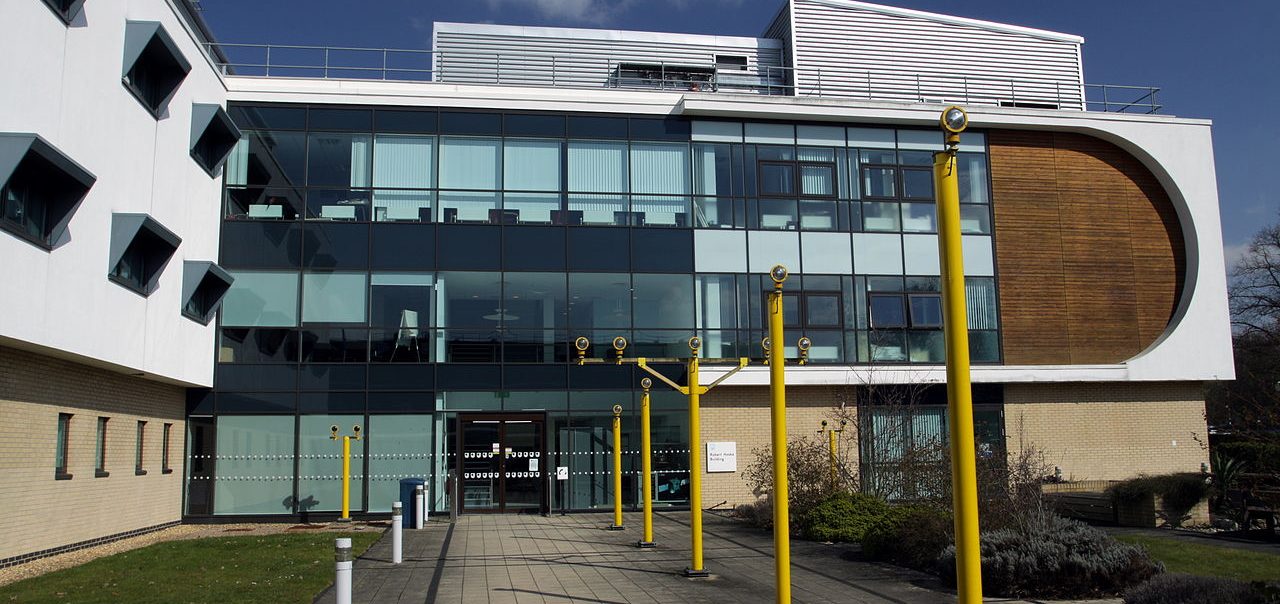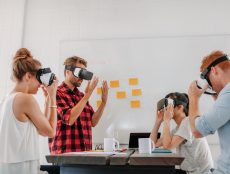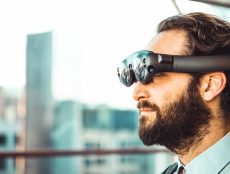
Articles
Higher Education
OU Researchers Identify 6 Promising Technology-Based Pedagogies that Have Been Shown to Work
By Henry Kronk
October 21, 2019
As technology and education research have continued to develop side by side, many stakeholders have begun to see huge potential in the future of education. But to connect the dots between the present and that future potential of technology-based pedagogy, there is still much work to be done. Since 2012, a coalition of education researchers involved with the Institute of Educational Technology (IET), The Open University (OU) and other edtech research initiatives have produced annual Innovating Pedagogy reports. These describe emerging pedagogies that combine new technologies with innovative educational practices, present research on their effectiveness, and discuss their uses. Innovating Pedagogy 2019 was published this month.
As lead author OU Professor Christothea Herodotou writes in the introduction, “The question we are asked to answer is whether the education vision of the future, or the development of the skills needed to cope with an ever-changing society, has been met, or can be met. The short answer is not yet.”
The Future of Technology-Based Pedagogy
In the 2019 report, the authors present six emerging technology-based pedagogies. These are: formative analytics, teachback, place-based learning, learning with robots, learning with drones, and citizen inquiry.
These were selected based on a detailed criteria with the general view that “learning is a science” and that “the testing of learning interventions and teaching approaches before applying these to practice should be a requirement for improving learning outcomes and meeting the expectations of an ever-changing society.”
Formative Analytics
There’s no shortage today of data and analytics interventions in education. Many have realized that traditional assessment methods—testing, quizzing, and homework—provide just a rudimentary window into the learning process. Instead, stakeholders have sought to gain a far more detailed view with more frequent and detailed assessment.
The technology-based pedagogy of formative analytics, however, suggests that students, too, should have access to these insights to the same or similar degree that teachers do. Researchers believe that presenting students with their own performance data leads to the advent of self-regulated learning (SRL).
While much of the research has focused on formative analytics’ cognitive benefits, some has also shown promise to give students insight into their own behavioral and even emotional dimensions of learning as well.
Teachback
The teachback pedagogy was originally theorized by Gordon Pask in 1976. It involves bringing two learners together to have one teach the other what he or she knows about a subject. Then the roles switch, and the former student becomes the teacher, with the object that both progress towards a more meaningful, shared understanding of a topic.
That might sound like a particularly analogue pedagogy, but recent research has sought to apply the method to both online courses and even AI systems. With the later, the AI serves as a ‘teachable agent’ and the process becomes an exercise for the student in demonstrating mastery over a subject.
Place-Based Learning
Much of a student’s education involves subjects that might not have much relevance to their immediate lives. But as OU Senior Lecturer Mark Gaved writes, “Place-based learning derives learning opportunities from local community settings. These help students to connect abstract concepts from the classroom and textbooks with practical challenges encountered in their own localities.”
While the actual learning and educational content of place-based learning might vary widely, Gaved describes how, “Mobile and networked technologies have opened up new possibilities for constructing and sharing knowledge, and reaching out to different stakeholders.”
Learning with Robots
In recent years, many students have gained an introduction to computer science by programming simple robots and Raspberry Pi-operated devices. This technology-based pedagogy has, in fact, been in use since 1980 when Seymour Papert devised his Logo Turtles.
Since the ‘80s, the use of robots in education has greatly expanded, and a 2012 literature review found many improvements in the learning process when robots were involved, especially in STEM subjects. Since, researchers have also demonstrated their use in subjects like early language learning, storytelling, and teaching kids with autism spectrum disorder.
Learning with Drones
According to OU Professor Agnes Kukulska-Hulme, “drone-based learning, a recent innovation, is being used to support fieldwork by enhancing students’ capability to explore outdoor physical environments.”
This generally manifests in two different ways. Drones offer the ability to ‘look and see’ in places and from perspectives where students normally can’t. They also can significantly enhance media and digital storytelling projects, a skill that might very well be useful in a learner’s professional life.
Citizen Inquiry
While, for centuries, the practice of science was generally understood to be something done by experts in a given field, the internet, digital technologies, and crowdsourcing have begun to change that.
Citizen inquiry allows learners to participate in the scientific process as volunteers in research led by scientists. Some typical examples include identifying species and measurement or counting.
There are numerous benefits to this practice, and it has been facilitated by popular online platforms like Zooniverse and nQuire. The practice can also take place offline just as well.
OU Professor Christothea Herodotou concludes, writing, “The proposed pedagogies have great potential in terms of reducing the distance between aspirations or vision for the future of education and current educational practice. This is evident in their relevance to effective educational theories including experiential learning, inquiry learning, discovery learning, and self-regulated learning, all of which are interactive and engaging ways of learning. Also, the review of existing evidence showcases their potential to support learning processes and desirable learning outcomes in both the cognitive and emotional domain.”
But she also points out that this list is hardly exhaustive. Some other promising pedagogies include “playful learning emphasizing the need for play, exploration and learning through failure, virtual studios stressing learning flexibility through arts and design, and dynamic assessment during which assessors support learners in identifying and overcoming learning difficulties.”
Technology-based pedagogy still has ground to cover, but it has grown more and more accepted in recent years.
Featured Image: Wikimedia Commons.









2 Comments